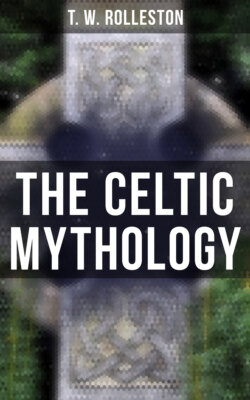Читать книгу The Celtic Mythology - T. W. Rolleston - Страница 38
На сайте Литреса книга снята с продажи.
Pliny on the Religion of Magic
Оглавление“Magic is one of the few things which it is important to discuss at some length, were it only because, being the most delusive of all the arts, it has everywhere and at all times been most powerfully credited. Nor need it surprise us that it has obtained so vast an influence, for it has united in itself the three arts which have wielded the most powerful sway over the spirit of man. Springing in the first instance from Medicine—a fact which no one can doubt—and under cover of a solicitude for our health, it has glided into the mind, and taken the form of another medicine, more holy and more profound. In the second place, bearing the most seductive and flattering promises, it has enlisted the motive of Religion, the subject on which, even at this day, mankind is most in the dark. To crown all it has had recourse to the art of Astrology; and every man is eager to know the future and convinced that this knowledge is most certainly to be obtained from the heavens. Thus, holding the minds of men enchained in this triple bond, it has extended its sway over many nations, and the Kings of Kings obey it in the East.
“In the East, doubtless, it was invented—in Persia and by Zoroaster.36 All the authorities agree in this. But has there not been more than one Zoroaster?... I have noticed that in ancient times, and indeed almost always, one finds men seeking in this science the climax of literary glory—at least Pythagoras, Empedocles, Democritus, and Plato crossed the seas, exiles, in truth, rather than travellers, to instruct themselves in this. Returning to their native land, they vaunted the claims of magic and maintained its secret doctrine.... In the Latin nations there are early traces of it, as, for instance, in our Laws of the Twelve Tables37 and other monuments, as I have said in a former book. In fact, it was not until the year 657 after the foundation of Rome, under the consulate of Cornelius Lentulus Crassus, that it was forbidden by a senatus consultum to sacrifice human beings; a fact which proves that up to this date these horrible sacrifices were made. The Gauls have been captivated by it, and that even down to our own times, for it was the Emperor Tiberius who suppressed the Druids and all the herd of prophets and medicine-men. But what is the use of launching prohibitions against an art which has thus traversed the ocean and penetrated even to the confines of Nature?” (Hist. Nat. xxx.)
Pliny adds that the first person whom he can ascertain to have written on this subject was Osthanes, who accompanied Xerxes in his war against the Greeks, and who propagated the “germs of his monstrous art” wherever he went in Europe.
Magic was not—so Pliny believed—indigenous either in Greece or in Italy, but was so much at home in Britain and conducted with such elaborate ritual that Pliny says it would almost seem as if it was they who had taught it to the Persians, not the Persians to them.
